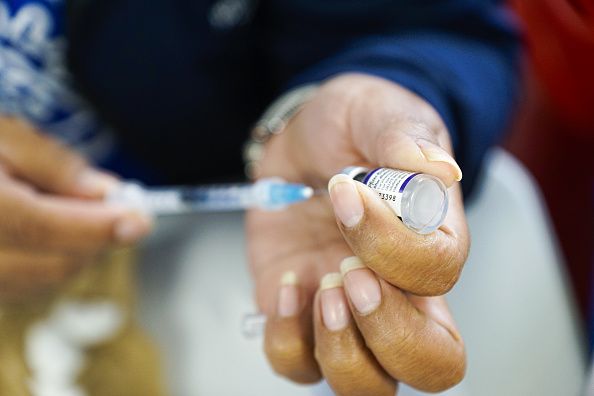While the pandemic, and the panic, are over, COVID-19 cases are rising across the U.S. prompting concern about a return to mass vaccination, masking and even lockdowns.
Things are much different in 2023 than 2020, however. In an interview with International Business Times, Andrew Peskoz, a professor at Johns Hopkins University’s Bloomberg School of Public Health focused on the study of coronaviruses and other respiratory diseases, said the disease response and vaccinations have grown overall immunity to COVID-19.
Peskoz told IBT this means the lockdowns and closures seen at the peak of COVID concern in 2020 will likely not return. Nevertheless, he said COVID is here to stay and booster shots and masks may be necessary for some people.
Scott Pauley, a spokesman for the U.S. Centers for Disease Control and Prevention, shared the latest statistics from the agency with IBT.
Pauley characterized COVID-19 hospital admissions as “low” with 12,613 new admissions for the week of Aug. 6-12. That figure was up from 10,370 the week before. However, it’s much lower than the 42,000 hospitalized during the week of Aug. 6-12, 2022.
“The U.S. has experienced increases in COVID-19 during the last three summers, so it’s not surprising to see an uptick after a long period of declining rates,” Pauley told IBT in an email. “CDC’s genomic surveillance continues to indicate that the majority of infections are caused by strains closely related to the Omicron strains that have been circulating since early 2022.”
The disease, Peskoz said, is constantly circulating globally, mutating and producing new variants. One variant, identified as BA.2.86, is catching the eyes of scientists and public health agencies.
Peskoz said that highly mutated variant could be resistant to COVID vaccines and, in theory, could prompt a seriously public health response if it were to become widespread.
A CDC risk assessment published on Wednesday indicated the BA.2.86 variant was detected in U.S. wastewater as part of…
Read the full article here








